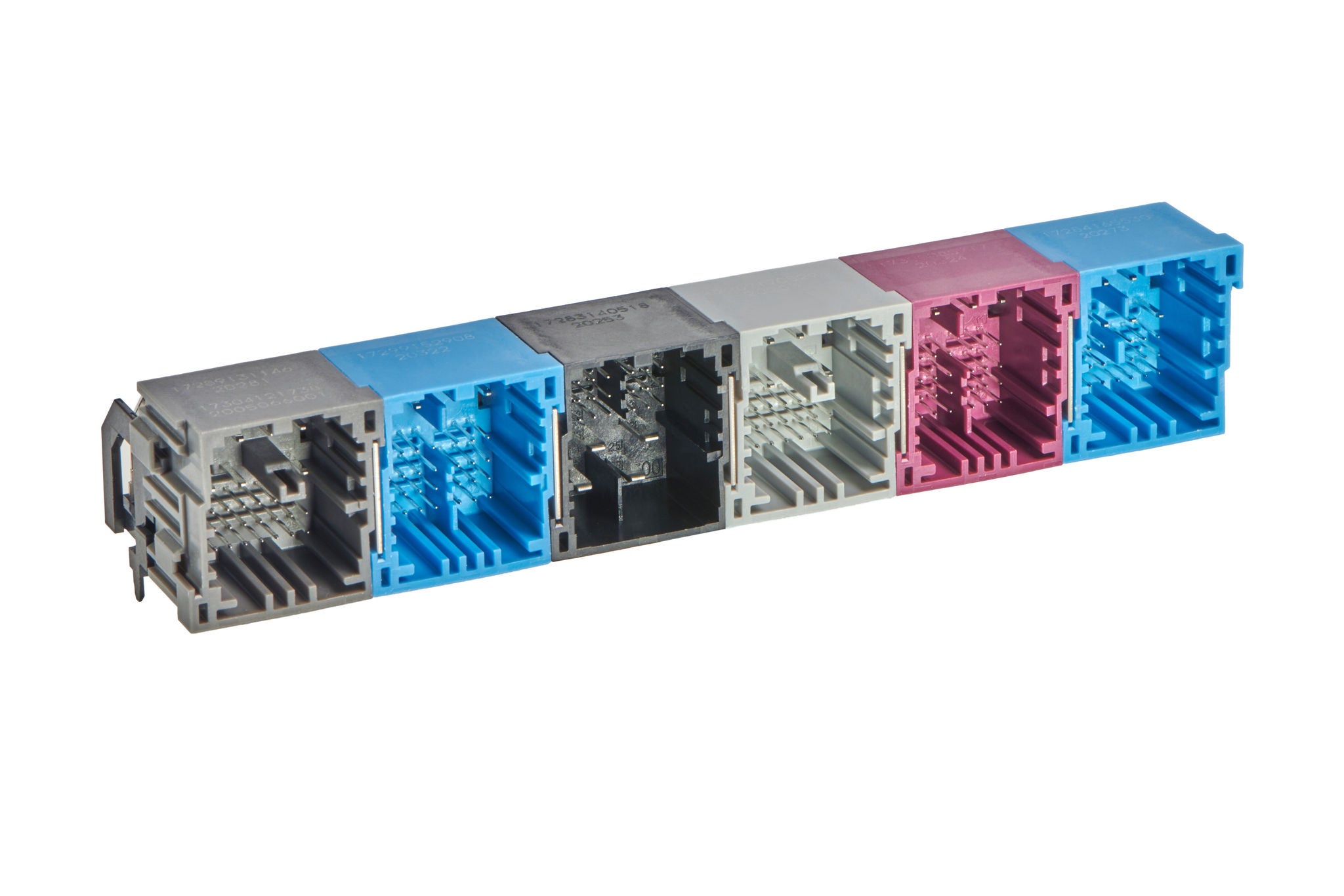Key Challenges in EV System Development
Electric vehicle design involves more than replacing combustion engines with batteries. Engineers must address the safe integration of high-voltage systems, effective heat dissipation and the growing complexity of signal and power distribution across increasingly compact vehicle architectures. Balancing these requirements with the pressure to reduce weight, mitigate electromagnetic interference (EMI) and sustain long-term battery performance requires a new approach to system integration.
Delivering on these goals calls for precision-engineered EV technology that supports efficient power management under all operating conditions. This includes developing reliable battery management systems that dissipate thermal loads, maximizing energy efficiency across powertrain components and maintaining data and signal integrity as electronic subsystems proliferate. Success depends on connectivity solutions engineered to combine electrical performance with mechanical resilience, while remaining adaptable to evolving EV designs.
Molex offers a portfolio of modular high-voltage connector systems and interconnect solutions tailored for next-generation EV architectures. These include thermally optimized assemblies that support heat dissipation, EMI-shielded components that preserve signal fidelity and flexible printed circuits that reduce weight while enhancing signal routing. With a focus on system-level efficiency and scalable integration, Molex supports the advancement of EV technology across power, control and communication domains.




?ts=1756494317707&dpr=off)










